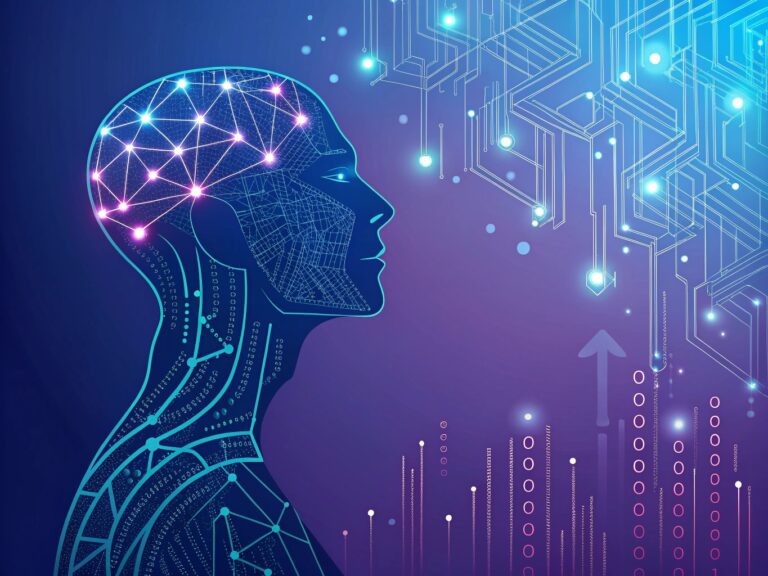In an era where artificial intelligence advances at breakneck speed, not all companies have equal attitudes. One of them stands at the forefront of both innovation and responsibility. Anthropic, a US-based AI research and safety company, is a leading player in developing powerful AI systems that prioritize safety, responsibility, ethics, and human wellbeing.
The Company With Humanity’s Future in Mind
Founded with the core belief that AI should serve humanity’s long-term interests, Anthropic takes a distinctive approach to AI development. Unlike companies solely focused on capabilities expansion, Anthropic balances technological advancement with deliberate consideration of potential impacts.
“At Anthropic, we build AI to serve humanity’s long-term well-being,” states the company’s mission. This philosophy drives their unique development strategy—one that involves both “bold steps forward and intentional pauses” to evaluate consequences.
Through their flagship AI assistant Claude, daily research initiatives, policy engagement, and thoughtful product design, Anthropic aims to demonstrate what responsible AI development looks like in practice.
Claude: Anthropic’s AI Assistant
At the heart of Anthropic’s public offerings is Claude, an AI assistant designed with helpfulness, harmlessness, and honesty as guiding principles. The Claude family has evolved through several iterations, with the latest being Claude 3.7 Sonnet, released in February 2025.
The Claude 3 model family currently includes:
- Claude 3.5 Haiku: The fastest model, optimized for daily tasks
- Claude 3 Opus: Excels at complex writing and sophisticated tasks
- Claude 3.5 Sonnet: Balances speed and intelligence
- Claude 3.7 Sonnet: The most advanced model, featuring enhanced reasoning capabilities
Claude 3.7 Sonnet represents a significant leap forward, incorporating what Anthropic calls “reasoning mode”—an extended thinking capability that improves response quality for complex questions. This feature is available to Pro account holders.
Anthropic has also recently released “Claude Code,” an agentic command-line tool that allows developers to delegate coding tasks directly from their terminal.
How Rapid AI Progress Shapes Anthropic’s Approach
Anthropic’s commitment to safety stems from a profound understanding of AI’s trajectory. The company believes AI progress is following predictable patterns of exponential growth, driven by three key factors:
- Training data expansion
- Increased computational power
- Algorithmic improvements
This exponential advancement isn’t merely theoretical—Anthropic’s researchers have empirically validated it through their pioneering work on “scaling laws,” which demonstrate that larger models trained on more data consistently exhibit enhanced intelligence in predictable ways.
While some once theorized that AI progress would hit “walls” in areas like multimodality and logical reasoning, many of these barriers have fallen. This strengthens Anthropic’s conviction that rapid AI advancement will continue rather than plateau.
By Anthropic’s projections, AI systems approaching or exceeding human-level performance across a wide range of intellectual tasks could emerge within the next decade—possibly as soon as late 2026 or early 2027. Their recent communication with the White House Office of Science and Technology Policy outlines characteristics of these “powerful AI systems”:
- Intellectual capabilities matching or exceeding Nobel Prize winners across disciplines
- Ability to navigate all interfaces available to humans for digital work
- Capacity for autonomous reasoning through complex tasks over extended periods
- Capability to interface with the physical world through digital connections
The Dual Safety Challenges
Anthropic identifies two fundamental safety concerns that shape their approach:
1. Technical Alignment
As AI systems become increasingly sophisticated, ensuring they remain aligned with human values grows more challenging. Anthropic uses the analogy of chess: “It is easy for a chess grandmaster to detect bad moves in a novice but very hard for a novice to detect bad moves in a grandmaster.”
This illustrates why advanced AI systems that pursue goals conflicting with human interests could pose serious risks—a scenario Anthropic works diligently to prevent.
2. Societal Disruption
Rapid AI advancement will inevitably disrupt employment patterns, economic structures, and power dynamics both within and between nations. These disruptions could be destabilizing on their own while simultaneously complicating careful AI development.
Anthropic’s Research Portfolio: A Multi-Faceted Approach
Recognizing the impossibility of predicting exactly how AI safety challenges will unfold, Anthropic has developed a diversified research portfolio. Their approach spans multiple scenarios, from optimistic cases where safety is relatively straightforward to pessimistic scenarios where alignment might prove nearly impossible.
Anthropic categorizes their research into three domains:
1. Capabilities Research
This work aims to make AI systems generally better at tasks but is not publicly shared to avoid accelerating capabilities advancement industry-wide.
2. Alignment Capabilities Research
This research develops new algorithms for training AI systems to be helpful, honest, and harmless. Examples include Constitutional AI (CAI), reinforcement learning from human feedback (RLHF), and automated red-teaming.
3. Alignment Science Research
This area evaluates whether AI systems are truly aligned, assesses how well alignment techniques work, and determines how results might extrapolate to more capable systems. This includes mechanistic interpretability, evaluation techniques, and generalization studies.
Current Safety Research Directions
Anthropic currently pursues six major research directions for creating safe AI systems:
Mechanistic Interpretability
This ambitious effort aims to reverse-engineer neural networks into human-understandable algorithms, similar to how one might analyze unknown computer code. The goal is to develop something akin to “code review” for AI models, enabling audits that can identify unsafe aspects or provide strong safety guarantees.
Scalable Oversight
As AI systems grow more powerful, ensuring adequate human supervision becomes increasingly difficult. Anthropic explores methods for “magnifying” limited human supervision into comprehensive AI oversight, building on techniques like Constitutional AI where models help supervise themselves based on principles learned during training.
Process-Oriented Learning
Rather than training AI to achieve specific outcomes through any means necessary, Anthropic focuses on teaching AI systems to follow beneficial processes. This approach ensures humans can understand each step an AI takes, prevents reward for inscrutable methods, and discourages problematic sub-goals like resource acquisition or deception.
Understanding Generalization
When AI models display concerning behaviors, are they simply reproducing training data or developing genuine capabilities that will generalize across contexts? Anthropic researches techniques to trace model outputs back to training data, providing crucial insights into how behaviors emerge.
Testing for Dangerous Failure Modes
By deliberately training concerning properties into smaller, safer models, Anthropic studies how larger systems might develop harmful emergent behaviors such as deception or strategic planning. This allows them to anticipate risks before they manifest in more capable systems.
Societal Impacts and Evaluations
Beyond technical research, Anthropic evaluates the broader societal implications of advancing AI. This includes studying potential economic impacts, developing tools to measure capabilities and limitations, and informing responsible AI policies.
Policy Recommendations and Future Outlook
Anthropic actively engages with policymakers to shape responsible AI governance. Their recent recommendations to the White House Office of Science and Technology Policy highlight six key areas for US action:
- National Security Testing: Developing robust evaluation frameworks for domestic and foreign AI models
- Strengthening Export Controls: Tightening semiconductor restrictions to maintain technological leadership
- Enhancing Lab Security: Establishing secure communication channels between AI labs and intelligence agencies
- Scaling Energy Infrastructure: Building 50 additional gigawatts of power capacity by 2027
- Accelerating Government AI Adoption: Identifying workflows that could benefit from AI augmentation
- Preparing for Economic Impacts: Modernizing data collection to monitor and address economic changes from AI
Pricing and Accessibility
Anthropic offers multiple ways to access Claude:
- Through web-based, mobile, or desktop chat interfaces
- Via API access (using model string ‘claude-3-7-sonnet-20250219’)
- Through Claude Code for developers (currently in research preview)
While specific pricing details are frequently updated, Anthropic maintains both free access options with usage limitations and premium subscriptions that offer enhanced features, higher usage limits, and access to the most advanced models.
Conclusion: Balancing Progress and Prudence
In a field often characterized by unbridled technological advancement, Anthropic represents a distinctive voice advocating for balanced progress. Their approach recognizes both AI’s immense potential benefits and its serious risks, embracing empirical research to navigate this complex landscape.
As AI systems grow increasingly powerful, Anthropic’s commitment to safety research, responsible deployment, and policy engagement positions them uniquely among AI developers. Through their continued work, they aim to ensure that advanced AI systems remain beneficial, safe, and aligned with humanity’s best interests—not just in the immediate future, but for generations to come.
If you are interested in this topic, we suggest you check our articles:
- Who Created Artificial Intelligence? The AI Evolution Explained
- An overview of trending AI models
- The Race Toward Artificial General Intelligence
Source: Anthropic (link 1, link 2)
Written by Alius Noreika


